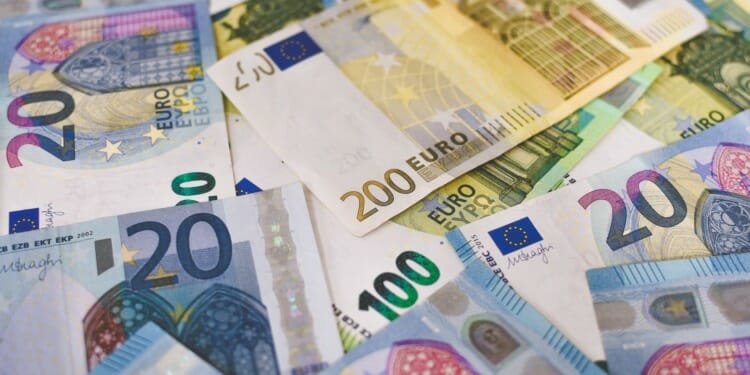On September 15, at the European Parliament, Ursula von der Leyen, the EU Commission Chief, began her speech on the State of the Union and began with this sentence by Robert Schuman: Europe needs a soul, an ideal, and the political will to serve this ideal. Aware that 34 million Europeans are rising from energy poverty, von der Leyen proposes a new European Social Climate Fund. Some governments are already acting too: Spain moved to ease the cost of energy bills, Italy and France are considering it and Greece has announced a subsidy for all households.
Such a proposal will impact directly European citizens across the continent, as the electric bill continues to rise and consumers look at winter with concern. The surge in European power prices is predominantly being driven by soaring fossil gas costs – not carbon prices. Reducing the external energy dependence of the European Union is essential for the future.
The green transition is not cost-free, especially in the short term. Nevertheless, the EU has before itself the opportunity to be even greener, more social, more democratic, and more secure. It has a plan and a wide range of measures that would enjoy broader social support and more solidarity.
According to the Eurobarometer, European citizens believe that climate change is the most serious problem facing the world. The transition to a climate-neutral society is, therefore, an urgent challenge widely supported by Europeans, and as Richard Titmus said: “Knowing nothing about wind and currents, without some sense of purpose, men and societies do not stay afloat for long, morally, and economically, simply bailing water.”
With the European Green Deal, a package of measures aimed at reducing greenhouse gas emissions to zero and ensuring a fair, healthy, and prosperous society, the European Commission is striving to make Europe the first climate-neutral region by 2050. While the European Climate Law provides in binding legislation to the European Union’s commitment to climate neutrality and the intermediate goal of reducing net greenhouse gas emissions by at least 55% by 2030, compared to the 1990 levels.
The proposals can be summarized as applying emissions trading to new sectors and strengthening the current EU emissions trading regime; greater use of renewable energies; greater energy efficiency; faster deployment of low-emission modes of transport and the infrastructure and fuels to sustain them; adjustment of fiscal policies to the objectives of the European Green Deal; measures to prevent carbon leakage; and instruments to preserve and enhance our natural carbon sinks.
The aim is to ensure that people have a good standard of living, without unsustainably high levels of greenhouse gas emissions. This is feasible. In fact, in the last 30 years, the GDP of the European Union has increased by 60%, while CO2 emissions have decreased by 25%.
The transformation towards a green society is possible, recommended, and affordable, although it comes with its costs, especially in the short term. An EU Commission impact assessment published last year mentions:
“While tax increases for fossil fuels in the transport or heating sector are powerful incentives towards behavioral change, in the short term, consumers may not be easily able to change their consumption patterns when an important share of their income is involved. This will be carefully assessed. The final impact depends on the way in which the redistributive effect is compensated via accompanying measures through social policy and welfare systems.”
Policymakers must be honest and almost as pragmatic as Angela Merkel in her memorable response to a question about what feelings Germany awakes in her, and the Chancellor replied – “I think of well-sealed windows.” It must be ensured that the costs of the green transition, as well as the benefits, are shared fairly.
Reducing energy demand and boosting efficiency is a recommendable solution in the short term, but one that must be complemented by positive redistribution through taxes and carbon offsets. In such a way that the most vulnerable and low-income people are protected, who are also the least able to invest in new technologies, be it cars, solar panels, or heating devices.
Other necessary measures are to reduce Europe’s external energy dependence and accelerate the energy transition. It is also essential to manage European funds for the ecological transition with maximum transparency, coherence, and agility, having a clear climate-neutral objective for 2050.
The shadow of the “yellow vests” lurks and some opportunistic politicians will try to take advantage of it. Hopefully, we have learned from experience and understand that the ecological transition must be fair and requires ambition and action.
We may see this in the election results in Norway and the upcoming general election in Germany – a country that has recently suffered devastating floods. Along with the electoral programs of the candidates for the French presidential elections next spring, an appointment that will coincide with the French presidency of the Council of the EU and the Fit for 55 debates.
These events will provide an idea of the direction the European Union is taking in Climate Action and if we really want to be the first climate-neutral continent in the world.
Editor’s Note: The opinions expressed here by Impakter.com columnists are their own, not those of Impakter.com. — In the Featured Photo: A pile of Euro bank notes in 20, 100, and 200 notes. Featured Photo Credit: Ibrahim Boran.










